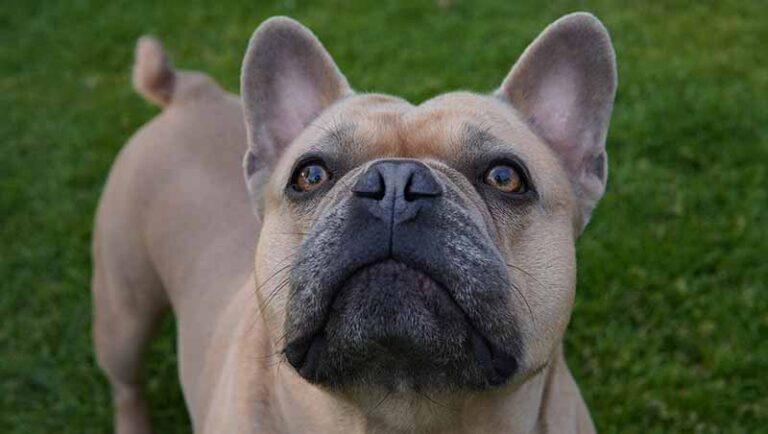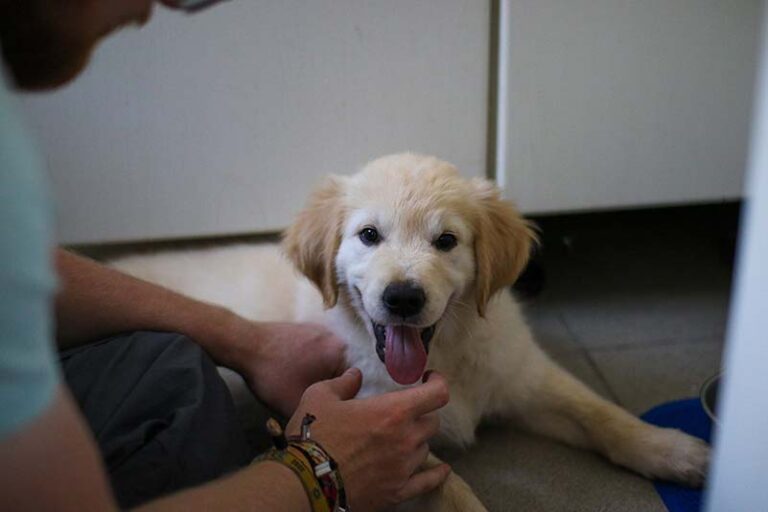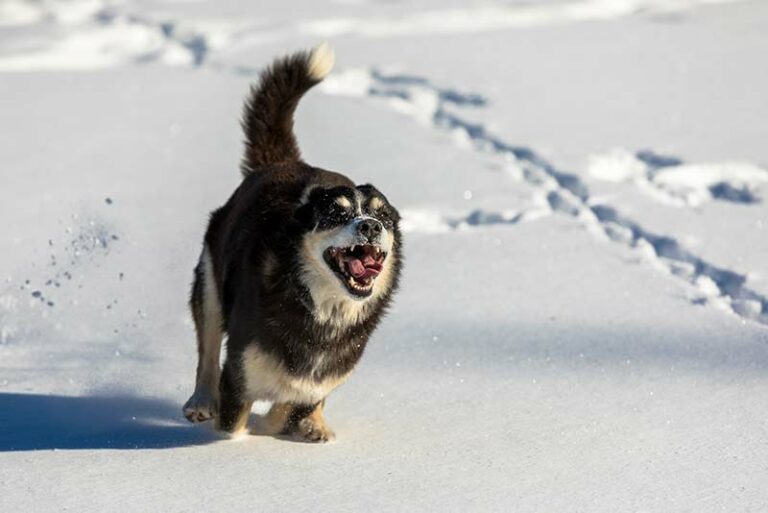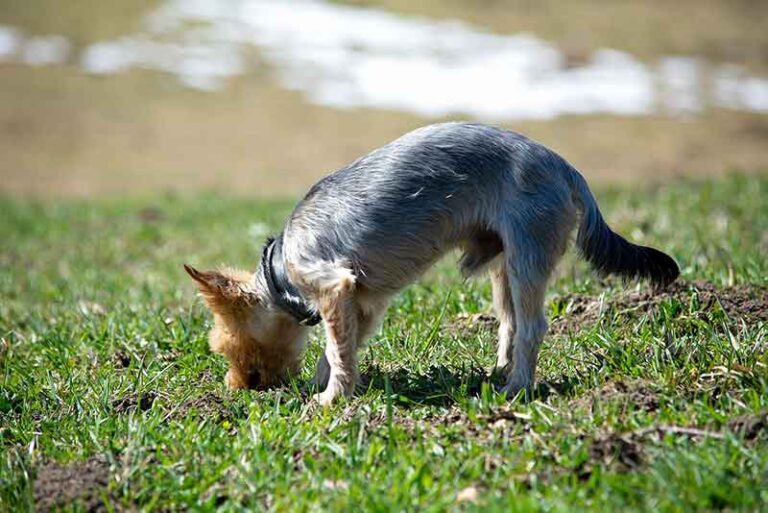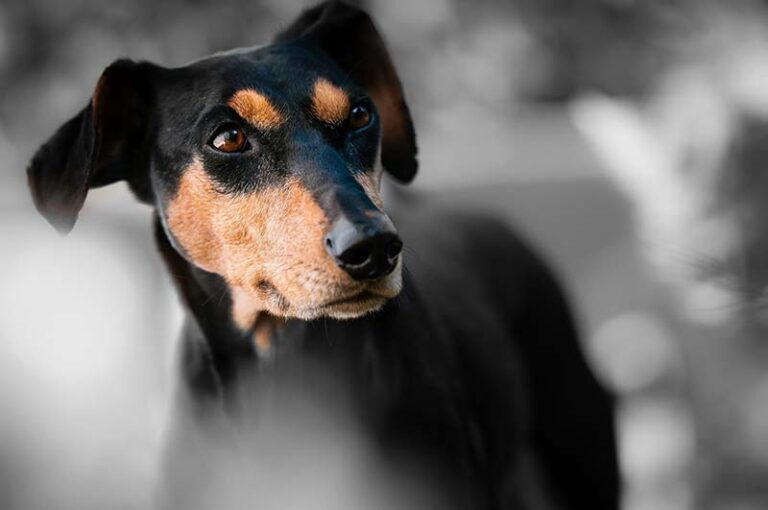Why Is My Dog Restless And Pacing At Night? FAQs Answered
Dogs have been living with us for centuries now, and it’s not a surprise how familiar they are with human routines. But sometimes, these familiarised routines might go slightly off track with some dogs.
So, why is my dog restless and pacing at night? As a dog parent for more than 11 years, I have seen my dogs have been restless and pacing at night. I have observed many reasons for that, such as pain, anxiety, hunger, cognitive dysfunction, stress, or the need to potty.
Even though I haven’t firsthand experienced all of the above, I can give you insight into why my dog is restless and pacing at night on several occasions throughout his life. Let’s get started!
Why Is My Dog Restless And Pacing At Night?
I’m sure you have heard click clacks running through your house at night. Sometimes, it may stop as fast as it started, whereas there are times when it could go on for hours. Those click-clacks were indeed made by your pet doggy’s nails hitting the hardwood floors.
But if they have familiarized themselves with our habits and routines, they surely know that they have to settle down once the sun goes down.
Yes, they know that, and they settle down for a rest at the end of every day. But there are some blue moons that our pet dogs might find hard to settle down.
At such times, I find that my dog is restless and pacing at night. They will pace, howl, pant, and cry whenever they hit this bump.
As I mentioned before, anxiety, Cognitive Dysfunction, and hunger are some prevalent causes that can make your pet restless.
I should also mention that these types of behaviors or diseases that cause your friend to be up for most of the night are more common amongst the old dog population than the younger ones.
Because the younger generation is much more active and healthier than the adults, they tend to be fit to fight off many disorders.
In contrast, when they get old, the pain that runs through their bodies is the main problem they face.
And much to your guess, these pains keep them up and are responsible for making them restless throughout the nights.
Why Is My Dog Restless At Night All Of A Sudden?
There are many reasons why my dog is restless and pacing at night. Let me give you a brief insight into each of them.
- Dementia
This is most known in the medical field as Canine Cognitive Dysfunction (CCD). With the aging of your pup’s brain, some doggies experience something like Alzheimer’s in humans.
They get baffled, and their night and day routines might get overturned; then, they’ll sleep during the day and stay awake after sundown.
If your furry friend started being up for repetitive rights, a visit to the dog clinic is in order. Because this condition persists, it could also bring up anxiety in your pet.
- Anxiety
There are mainly three types of strains in dogs. They are, namely, fear-related, separation anxiety, and age-related anxiety.
However, every dog faces an anxiety period throughout his life, and that’s normal and temporary. But suppose inordinate stress levels are left without medical treatments.
In that case, it could very well lead to issues concerning behavior and many more.
- Physical needs
Hunger and the need to potty are the most harmless reasons that cause dogs to be restless and peaceful during the night.
It’s normal for a dog to be hungry, thirsty, or get a feeling to relieve his bowels. After you tend to their needs, your dogs would usually get settled back down most of the time.
- Old Age Pains
We, humans, get pains in different parts of our body as we get old, and that’s how nature takes its course. It’s no further for a dog.
They also get arthritis and other muscle pains when they gradually get old. And when they did, it would be harder for them to settle down that easily.
How Can I Help To Calm Down My Restless Dog?
Nighttime is when our body gets its rest. After a tiring day, when we get onto our beds to finish the day off, our satisfaction is immense and like no other.
But when the whole house sleeps, and there’s a click-clacking sound around the house, everybody sleeping peacefully will get disturbed.
And you will wonder what in the world is your doggie doing in the wee hours of the night. Let me share with you my calming methods whenever my dog is restless and pacing at night.
- Exercise And Mental Simulation
We get into a profound slumber after many exercises and being active throughout the day. Just like that, our dogs will, too, sleep better if they get enough mental stimulation and training during the daytime.
Do many activities during the day, such as long walks, playing fetch, and anything that would wear off their energy. You’ll have a peaceful dog at night.
- Build A Safe Sleeping Place
If your pet isn’t feeling safe sleeping at his current place, he’ll get restless at night. Try taking him near where you sleep or change his bed to a cozier corner.
Then check if he settles down in the next few nights.
- Music
Don’t be surprised; slow and steady music has a great way of calming your doggo at night.
- Bathroom Before Bed
Sometimes I found that a quick bathroom trip outside will help whenever my dog is restless and pacing at night.
Make it a routine to take your dog out to get his business done before heading to bed.
- Seek Medical Attention
If none of the methods you try won’t work, seek medical attention. Your pet’s doctor will be able to prescribe calming tablets for your dog, which I, too, have found effective.
Try these methods if your dog is restless and pacing around the house at night. Keep a watchful eye and check if the situation gets under control.
If not, the best thing you could do is take your dog to the doctor to get it checked.
Thank you for reading this post. Stay tuned with Jack Russell Owner for more interesting posts. Have a nice day!



